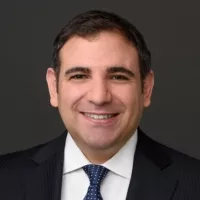- within Finance and Banking topic(s)
Executive Summary
The first 100 days of President Trump's second term have ushered in a transformative era for crypto asset regulation in the United States, marked by a pro-innovation, deregulatory approach across federal agencies that may pave the way for the crypto market to become integrated with the broader financial system. This alert synthesizes key policy shifts and announcements, grouped by agency, and analyzes their significance for the crypto industry. Links to the announcements and other publications are provided in the appendix for ease of reference.
Executive Orders
President Trump issued two pivotal executive orders promoting crypto asset innovation and establishing strategic national crypto asset reserves. The first order, EO 14178, codifies a national strategy to foster blockchain growth, limits federal regulatory overreach, and bans central bank digital currencies, emphasizing private sector leadership. It establishes the President's Working Group on Digital Asset Markets to identify and reform regulatory barriers. The second order, EO 14233, creates a Strategic Bitcoin Reserve, treating bitcoin as a national asset akin to gold, and a flexible Digital Asset Stockpile, both managed by the Treasury using assets from forfeitures.
These orders signal a seismic shift toward embracing crypto assets as strategic economic tools, aligning with President Trump's campaign promises to make the U.S. a crypto hub. By prioritizing private innovation and prohibiting federal digital currencies, the administration reduces regulatory uncertainty and encourages investment. Following the executive orders, federal agencies started aligning their policies with the new framework as discussed further below—scaling back enforcement actions, revising guidance to support the use of blockchain technologies, and inviting feedback and input from the public.
Bank Regulatory Reform
The Office of the Comptroller of the Currency (OCC), Federal Deposit Insurance Corporation (FDIC), and Federal Reserve Board have aligned to reduce barriers for banks engaging in crypto activities. Pursuant to its Interpretive Letter 1183, the OCC eliminated its requirement that banks obtain supervisory non-objection before offering certain digital asset activities such as crypto custody, stablecoin reserve holding, and distributed ledger participation. The FDIC and the Federal Reserve Board rescinded prior notification and approval requirements for crypto-related activities, withdrawing risk-focused guidance from 2022-2023. The agencies emphasize standard supervisory oversight, aiming to ensure safety and soundness without stifling innovation.
These coordinated actions dismantle a de facto ban on bank involvement in crypto, integrating certain permissive crypto activities into traditional banking. By streamlining oversight, the agencies enable banks to offer custody services, support stablecoins, and leverage blockchain technology, fostering mainstream adoption. This shift supports the administration's deregulatory agenda, facilitates innovation in the space, and will help accelerate the integration of the crypto market and the broader financial system. Nonetheless, there are still some regulatory barriers that banks must navigate, including ongoing supervisory expectations and state-level restrictions.
Securities and Exchange Commission (SEC)
The SEC has pivoted toward regulatory clarity and reduced enforcement. It first rescinded the controversial Staff Accounting Bulletin No. 121, easing capital requirements for crypto custodians. The Crypto Task Force, led by SEC Commissioner Peirce, is soliciting public input in order to recommend practical policy measures that aim to foster innovation and protect investors, and to help the SEC resolve many of the uncertainties surrounding the application of the federal securities laws to activity involving crypto assets—including securities classification, trading, custody and tokenization. Various guidance from the SEC Division of Corporate Finance clarified that typical meme coins, certain proof-of-work mining activities, and certain covered USD-backed stablecoins are not securities, though Commissioner Crenshaw's dissents highlight different views. Most recently, the Division also outlined disclosure expectations for offerings and registrations of securities in the crypto asset markets, and for the first time, distinguished between the offering of crypto assets as a transaction and the underlying crypto assets (implying that secondary market trading in the underlying assets would not be subject to SEC regulation). The SEC dismissed enforcement actions against major crypto firms (e.g., Coinbase and Consensus) and closed investigations alleging violations of SEC registration requirements, signalling a shift away from the prior administration's regulation-by-enforcement approach to crypto.
The SEC's actions reflect a commitment to balancing investor protection and innovation. Crypto Task Force efforts and statements by the Division aim to resolve longstanding uncertainties and provide market participants with guidance and operational confidence. Nevertheless, states may well seek to step in the "enforcement vacuum" left by the SEC, as already shown by the State of Oregon's lawsuit accusing Coinbase of violating the Oregon Securities Law based on allegations that mirror the federal (SEC) complaint against Coinbase that was recently dismissed by the SEC.
Commodity Futures Trading Commission (CFTC)
The CFTC withdrew two prior advisories on virtual currency derivatives and clearing, signalling equal treatment of digital asset derivatives with traditional products. It also began soliciting public comments on perpetual crypto futures contracts, a cornerstone of crypto markets outside of the U.S., to explore regulatory frameworks that could expand U.S. access.
These moves align the CFTC with the administration's deregulatory stance more generally, and indicate progress toward formal regulatory guidance for these widely used but currently restricted crypto derivatives. A clear regulatory framework for perpetual contracts would lead to U.S. crypto market expansion, enabling U.S. traders to access significant market activity that is currently restricted.
Department of Justice (DOJ)
U.S. Deputy Attorney General Blanche recently issued a memo titled "Ending Regulation by Prosecution," directing the DOJ to focus on prosecuting individuals who cause financial harm to digital asset investors and consumers or those who abuse digital assets in furtherance of other very serious criminal conduct (such as terrorism or narcotics trafficking) and to "no longer pursue litigation or enforcement actions that have the effect of superimposing regulatory frameworks on digital assets while President Trump's actual regulators do this work outside the punitive criminal justice framework." The DOJ also disbanded specialized crypto enforcement teams and raised thresholds for charges related to anti-money laundering compliance, licensing or securities disputes, deferring to regulatory agencies.
This policy curtails the DOJ's role in shaping crypto regulation through criminal actions, aligning with EO 14178's goal of protecting lawful blockchain users. It reduces fear of prosecution for technical violations, fostering industry growth. However, prosecution of serious crimes will likely remain a focus, and private litigation or state actions may fill enforcement gaps, requiring vigilance.
Treasury Department
The U.S. Department of the Treasury's Office of Foreign Assets Control (OFAC) removed blockchain-based addresses associated with crypto "mixer" Tornado Cash from the Specially Designated Nationals and Blocked Persons List (SDN List), following a Fifth Circuit ruling that immutable smart contracts are not "property" under sanctions law. This reflects a nuanced approach to regulate blockchain-based activities, showing limitation to OFAC's regulatory reach over decentralized technologies.
The action is welcomed by crypto sector participants in support of innovation in blockchain technologies and privacy-focused tools. It aligns with the administration's pro-crypto stance but underscores ongoing challenges in balancing sanctions compliance and innovation, as illicit use of mixers remains a concern for regulators.
* * *
These changes in position and policy signal a new willingness from the federal government to engage with, and broadly support, the crypto asset industry across agencies. Federal regulators are shifting from a case-by-case, enforcement-heavy approach to a more collaborative one aimed at crafting clear, technology-neutral rules. Multiple efforts in Congress are progressing, including legislative proposals on stablecoin and market structure, and the industry remains hopeful that Congressional action will provide a long-awaited federal framework to support this burgeoning industry.
However, the federal government's refreshed stance has not necessarily been adopted by state regulators and attorneys general. For example, less than two months after the SEC dropped its lawsuit against Coinbase, on April 18, 2025 the Oregon State Attorney General sued Coinbase for alleged violations of the Oregon Securities Law, asserting theories similar to those previously advanced by the SEC, namely that Coinbase unlawfully encouraged the sale of unregistered cryptocurrencies.1 Other states may similarly seek to fill what they deem an "enforcement vacuum" with respect to the crypto asset industry. Nevertheless, at the federal level, the Trump administration continues to engage in efforts to provide a regulatory landscape that is fertile for crypto asset development and proliferation.
Footnote
1. Oregon Attorney General Rayfield Sues Coinbase for Promoting and Selling High-Risk Investments, Or. Dep't of Just. (Apr. 18, 2025), https://www.doj.state.or.us/media-home/news-media-releases/oregon-attorney-general-rayfield-sues-coinbase-for-promoting-and-selling-high-risk-investments/.
To view the full article please click here.
To subscribe to Cahill Publications Click Here
The content of this article is intended to provide a general guide to the subject matter. Specialist advice should be sought about your specific circumstances.





